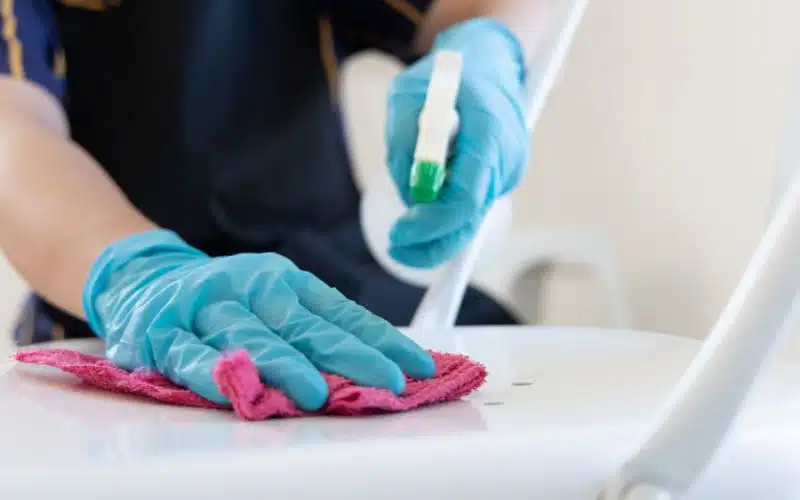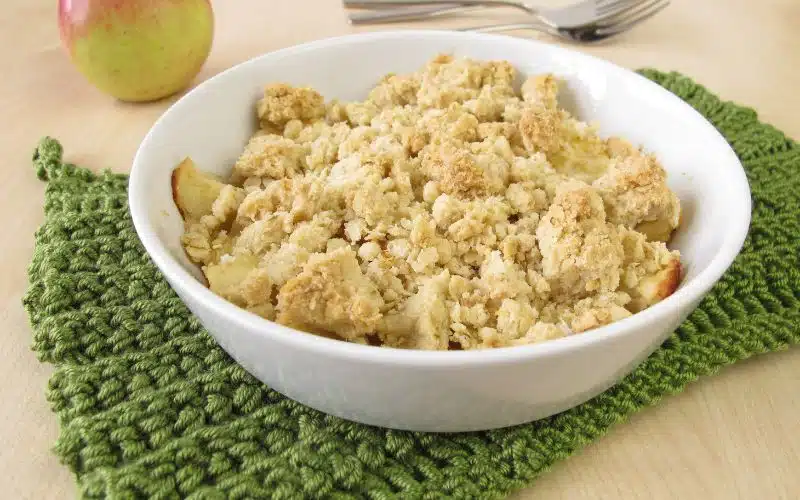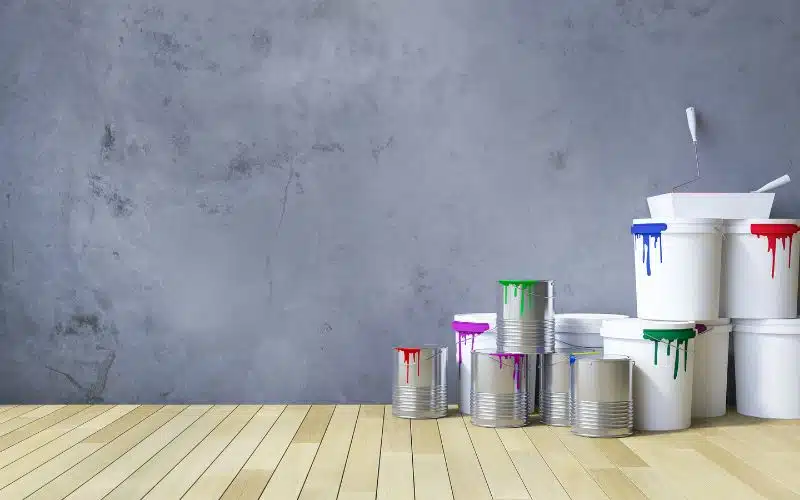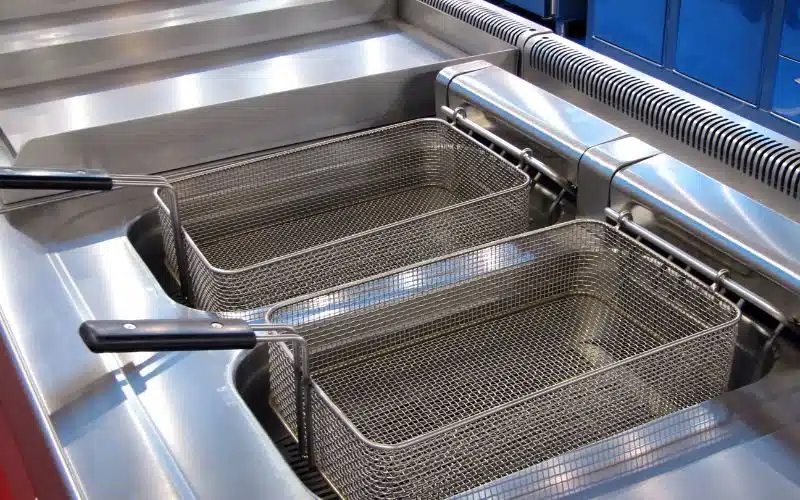Kilz original and kilz restoration primers are perfect odor and stain blocking products that work effectively.
They are unique products that make painting and restorations relatively easy and smooth.
Kilz original is recommended for all building materials and is perfect for walls, ceilings, cabinets, etc.
Foul odors and scratches on the floor can affect buildings’ general appearance and perfection.
Therefore, you would need to find a way to get rid of odors and dents without spending too much money.
Kilz is a very accessible product that can serve the purpose of restoring the perfection of the building. However, it is not an ideal choice for flooring.
Kilz is not recommended for flooring because it can wear off constantly walking over it. In addition, water-based kilz primers are not durable and can not withstand weight and friction. Kilz is also not recommended for flooring unless you need to mask unpleasant odors and stains.
Can You Use Kilz on the Floor?
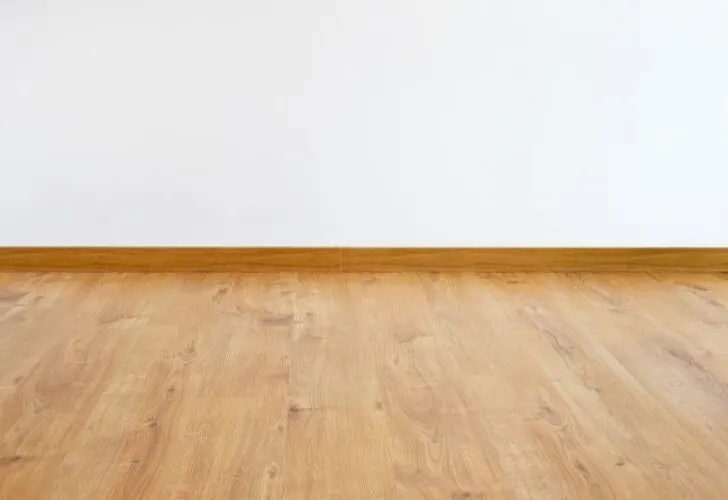
You can use kilz on floors, although there are some specific floors you should not use kilz.
The result you get from using kilz on the floor depends on the type of floor material. The primary purpose of the kilz primer is for wall surfaces and ceilings within the home.
The proper type of floors you can use kilz on includes concrete, tiles, and hardwood.
Furthermore, you can use kilz on other types of floors besides these three, but it won’t give you the desired result.
It may ruin the purpose you intend to achieve and spoil the appearance of your floor. A
lso, the primer may not stick to other surface types, and you would waste time and material if you use it on such surfaces.
You can also use kilz on subfloors though there are also some specific types of subfloors you can use it on.
You can use kilz on subfloors like plywood, organic-based, and hardwood. It is ideal to use kilz restoration primer on subfloors and floors prone to foul odor and stains.
The primer would effectively cover such defects. Also, it is essential to know the kind of kilz restoration primer you are using, as there are various types and qualities.
Some of the products are oil-based, while some are water-based. The wrong primer may affect the coat of paint you use and how many coats you need on a surface before it sticks.
It is best to always wash your floors before adding kilz. Dirt may affect efficiency and spoil the desired result.
The factors to consider before using oil-based and water-based kilz primer on floors are;
| Kilz Oil-based | Kilz Water-based |
|---|---|
| It is durable against impact. | It is not flammable. |
| It is effective on floors. | It does not have a strong odor. |
| It is effective for covering water stains. | It is an excellent stain and odor-blocking primer. |
| It successfully masks smoke odor. | It dries faster. |
| It emits a high amount of volatile organic compounds. | It produces a low amount of volatile organic compounds. |
| It takes longer to dry. | It is not durable. |
| It has a strong odor that may linger for a week without proper ventilation. | It does not adhere to certain floor surfaces. |
Why is Kilz 2 Not Recommended for Flooring?
Kilz 2 is not recommended for flooring because of its resulting texture after finishing. Kilz 2 will not give you the best results if you use it on floors because of its adhesive characteristic.
The adhesive nature of Kilz 2 makes it unable to give a silk-like and smooth finished surface.
The primer may stick to the floor when you apply it, but it would change texture when you do the finishing.
In addition, the manufacturers do not recommend kilz 2 for flooring. It is a water-based primer that does not look glossy on floors.
The main application of kilz 2 primer is for drywalls, ceilings, and other non-floor surfaces. Using it may affect your interior’s overall appearance and finishing, resulting in a botched design.
Furthermore, while Kilz 2 is not recommended for floors because of adhesion, you can use it on some sensitive parts of the floor to protect them from damage.
Although, it would not stay on the spot for long. The primer would keep leaving the floor as you frequently step on it. In addition, it would not hold the weight of people walking on it frequently.
Can Kilz Be Used on Wood Floors?
You can use Kilz only on hardwood floors because of its strength and turgidity. However, it would not protect the floor from damage.
Kilz can successfully hide floor stains and seal foul odors on your wooden floors. It can also successfully prevent the growth of molds and mildew on wood floors.
Although it is efficient, the wood floor eventually rots because it is still prone to moisture and dents.
Additionally, the kilz restoration primer may prevent the paint you use for finishing from sticking to the wood. Therefore, you may waste the primer and paint if you use it.
Finally, the oil-based kilz restoration primer is more durable for wood floors, unlike the water-based primer, which does not adhere to the floor surface and wears quickly from constant walking all over it.
However, the oil-based is toxic and emits volatile organic compounds (VOC). Therefore some countries like the U.S prohibit using it.
You may have to use the water-based primer for your wood floors, although you should not expect it to last long.
There are several pros and cons to using kilz restoration primers on wooden floors.
| Pros | Cons |
|---|---|
| It is stain-resistant. | A water-based primer is not durable against regular foot traffic unless you use a better finish coat. |
| It seals foul odor and dirt on the floor. | You need to clean it up with solvents during application. |
| Oil-based kilz primer is scratch resistant on wood floors. | It does not dry fast on wood floors. |
| It prevents mold growth on wood. | You can only use it on rigid wood materials. |
| It would be best if you used another finish coat that is epoxy-based to make the primer last longer. |
Can You Use Kilz on the Basement Floor?
Yes, you can use Kilz on basement floors. Basement floor materials are primarily concrete, and it is tough and durable.
Since the primer is best for hard surfaces, it would stick to the basement floor. Kilz concrete floor paint is the best for basement floors because it gives a high-quality finish and easily adheres to the floor surface.
Additionally, using kilz on your concrete basement floor would not make the weakness of the primer obvious.
The concrete floor can withstand the frequent weight of people walking on it without wearing or tearing.
However, it is essential to know that the finished texture of kilz on concrete floors would not be entirely smooth. You may want to use another primer if you desire a smooth finish.
Although, using kilz on your basement floors is not a bad idea since appearance rarely matters in the basement unless you intend to convert it into a living space.
It is best not to use a kilz restoration primer without kilz concrete floor paint to achieve the best results and make it last longer.
You should also avoid using another primer with kilz for your basement floors. Furthermore, there are several advantages to using kilz on your basement floors.
The advantages are;
#1. Moisture Reduction
Sealing your basement floor with kilz restoration primer and concrete floor paint reduces the amount of moisture that enters the floor.
The basement is prone to dampness because moisture enters through the tiny openings and cracks in the floor. The dampness causes the humid air in the basement to feel cold and musty.
It can also aid mold growth and mildew, resulting in decay. In addition, it can weaken the foundation of the building and affect the core structure.
However, kilz can create numerous protective layers on the floor to cover the openings and cracks against moisture. It can also prevent the growth of molds on the basement floors.
#2. Improves Appearance
Kilz concrete floor paint improves the appearance of the basement. It makes the basement more inviting and appealing.
You can use any colors you want to create a fun appearance that you desire for your basement. In addition, it adds more brightness to the basements, unlike bare basement floors.
#3. Covers Stains and Dents
One of the primary reasons people use kilz on surfaces is to cover stains, scratches, faded paint, and dents.
So instead of bothering about changing the flooring when there is a problem, you could apply some kilz over it to cover the faults. You only need to use the perfect color to cover the problem.
#4. Easy to Maintain
Sealing your basement floors makes them easier to clean and maintain. However, cleaning a bare concrete floor could be pretty tricky and time-consuming. Ordinary concrete floors have holes and pores that allow dirt and oil to hide.
As a result, you may be unable to thoroughly remove all the dirt unless you put in a lot of effort and hard work. Kilz blocks these pores and allows you to clean the floor thoroughly.
#5. Increases Safety
Kilz covers up cracks and dents in the floor that may cause you to trip. As a result, it reduces accidents and injuries from tripping and falling.
Although using kilz on your basement floors has a lot of benefits. There are also disadvantages to using kilz on basement floors.
#6. Time Demanding
Applying kilz on your basement floors can be stressful and time-consuming, especially if the basement is vast.
You must carefully carry out the procedure and pay attention to details. Any mistake could be obvious and ruin the whole project.
#7. Difficult to Use
You need to contact a professional to help you prime and paint your basement floors because it is difficult to do independently.
There are essential things that you must put into place before carrying out the process, such as floor prepping.
The professional would also use an acid-based substance to prevent the paint from chipping and flaking. It could be pretty hazardous to do this without knowledge or experience.
Six Reasons Why is Kilz Not Recommended for Flooring?
Although kilz is the perfect paint to mask odors and dents on the floor, the manufacturer does not recommend every product of the kilz brand for flooring.
It is the primary reason you need to know the ideal one for floors. However, there are other reasons why kilz is not recommended for flooring.
The reasons are:
#1. Adhesive Problem
Water-based kilz products do not stick properly to some flooring materials. They have adhesive features that prevent them from effectively aligning with the floor.
Such kilz products are not ideal for all types of flooring, and you need to understand their most suitable floor type. Although the oil-based kilz product may stick perfectly to the surface, it is risky.
#2. Long Drying Time
Some kilz products may take longer to dry if there is no proper airing. For example, if you plan to walk all over the floor soon enough, kilz may not be ideal at the time.
#3. Not Durable
Kilz may not be able to withstand frequent walking over. It tends to fade, wear, and bend if you keep walking over it.
You need to use kilz on a hard and durable surface to last long, or it could worsen a soft surface if you walk over it.
#4. Not Suitable Outdoors
Although kilz can seal up pores on the floor to prevent moisture, there is an extent to its effectiveness.
You can not use kilz for outdoor floors because there is more exposure to moisture.
Kilz is not moisture resistant and can not withstand that much moisture. It could lead to mold growth and result in rot.
#5. Strong Odor
Oil-based kilz has a solid and intoxicating odor that may linger long. Therefore, you need to allow proper ventilation into the room when you use kilz on your floors.
Using a respirator when using kilz on your floor would be best. Some people may find kilz choking if there is no adequate air circulation.
#6. Difficult to Apply
Kilz oil-based primer has a weak consistency. Therefore if you are using it to prime your floor, you must avoid letting it sprinkle everywhere.
It could ruin other parts of the floor or permanently affect the appearance of the floor.
Is Kilz Necessary?
No, kilz is not necessary in most cases. Kilz concrete floor paint is excellent at masking foul odors and stains.
However, unless you need it for this purpose, it is unnecessary to use kilz. Kilz primer is perfect for sealing jobs, but painting jobs do not necessarily need primers.
Although using primer would give an excellent appearance and result. Additionally, you need to use kilz primer if you install drywall to seal the pores before applying the topcoat paint.
If you don’t prime drywall before painting it, it would consume a lot of paint and waste your time.
Kilz is also necessary for repairing walls before applying paint, especially if you have a large patch on the surface.
Furthermore, kilz is necessary to hide dark color paint coats before applying a lighter coat on them.
The primer would not make the change in color shades obvious. Also, you can use kilz on an underlying surface to create a foundation before applying a new coat.
You would not have to endure the stress of using sandpaper on the underlayer.
Is Kilz Dangerous on Floor?
Kilz is not dangerous on floors, although it does not last long on delicate floors. It also has a powerful smell that may linger for three to four days after applying it to the floor.
Also, kilz primer is unsuitable for floors in high moisture locations (especially outdoors). It could facilitate mold growth and mildews, resulting in damage and rot.
However, kilz is hazardous to your health if you inhale the fumes. If you use kilz on your floors, you may need to use a respiratory mask till the lingering smell goes.
Inhaling kilz products may cause dizziness, drowsiness, and a feeling of suffocation.
In addition, Kilz oil-based products contain some petroleum-based derivatives that make it dangerous to inhale the fumes. However, kilz is not toxic and causes no serious harm.
Conclusion
In the end, it is essential to understand how kilz works for different purposes and surfaces before using it.
The wrong application of any kilz product could be time and money wasting. Therefore, it is always best to enlist professional help to use kilz for any purpose.
